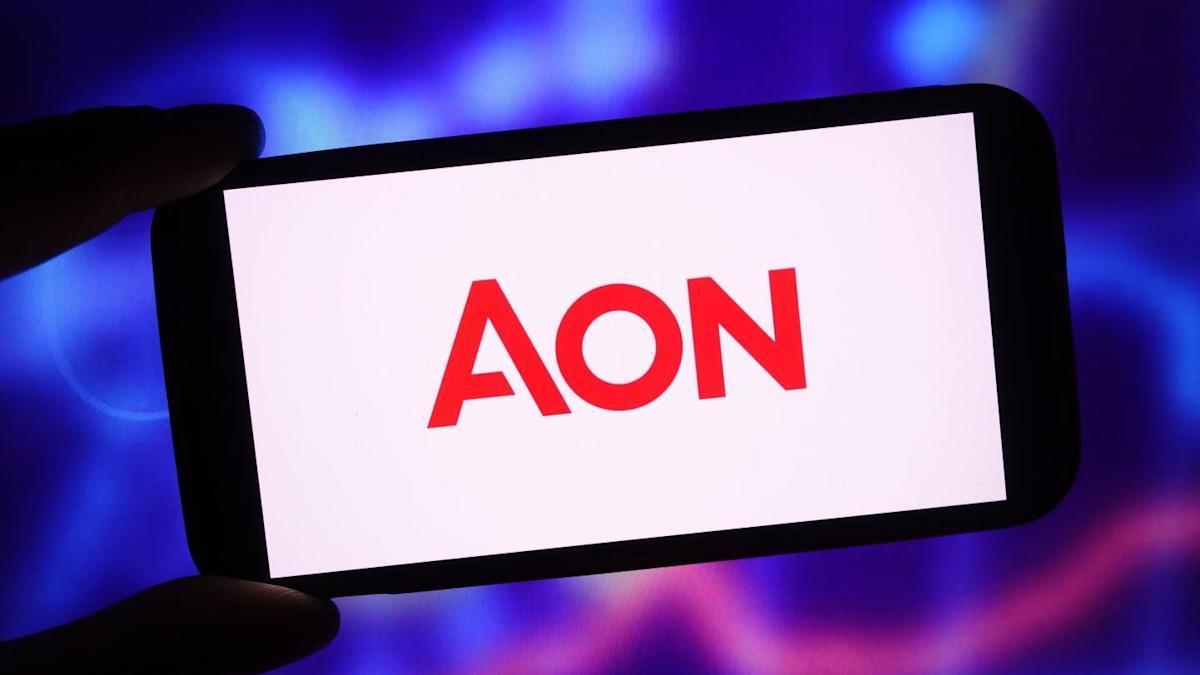News

California ballot initiative would upend state’s regulatory framework
The measure seeks to repeal most of Proposition 103, which has been in effect since 1988.
A proposed ballot initiative in California seeks to change the way property and casualty insurance is regulated in the state.
Since 1988, Proposition 103 has provided the regulatory framework for property and casualty insurance in the state. Insurance companies must get approval for rate increases from an elected insurance commissioner, and members of the public are able to object to increases.

Aon faces lawsuit over alleged role in Vesttoo collapse
The suit alleges that Aon “ignored red flags” and encouraged business partnerships despite internal doubts regarding Vesttoo's operations.A civil lawsuit has been filed against insurance broker Aon, accusing the company of contributing to the downfall of the once billion-dollar-valued Israeli insurance start-up Vesttoo.
Vesttoo ran a marketplace connecting insurers with investors for trading insurance-linked securities.
Vesttoo filed for bankruptcy in 2023 after it was revealed that insurance policies sold on its platform were supported by allegedly fraudulent letters of credit.
The suit, which was unsealed in Delaware bankruptcy court, alleges that Aon “ignored red flags” and encouraged business partnerships despite internal doubts regarding Vesttoo's operations.
The complaint, brought forward by trustee Lawrence Hirsh, who is tasked with recovering funds for Vesttoo's creditors, suggests that Aon's actions were instrumental in the start-up's collapse.

Liberty Mutual to pay $4.7M in bribery settlement
The U.S. Department of Justice (DOJ) has declared that it will not prosecute Liberty Mutual Insurance Company for alleged violations of the Foreign Corrupt Practices Act of 1977, despite finding evidence of bribery by employees of one of its subsidiaries.
According to the DOJ declaration, the government’s investigation into Liberty General Insurance (LGI), an India-based subsidiary of Liberty Mutual, found that between 2017 and 2022, employees paid $1.47 million in bribes to officials at six state-owned banks. The bribes were given in exchange for bank officials agreeing to refer bank customers to LGI’s insurance products. The DOJ reports that certain LGI employees worked to conceal the nature of these payments, including classifying the payments as marketing expenses and using third-party intermediaries to make the payments to officials.
AI in Insurance
Insurer in Full: AI investment lags ambition of insurance leaders as savings so far prove elusive
As insurance leaders enthusiastically advocate AI adoption, some in the industry highlight a mismatch in investment, which they put down to a lack of clarity on how the technology can deliver significant savings.
Searches by The Insurer of more than a dozen company reports and filings show little evidence of large financial commitments so far. The Insurer also asked 11 of the industry's largest carriers and brokers how much they have spent on AI adoption. All either declined to comment or did not respond.
Tom Spier, chief commercial officer of reinsurance broking platform Supercede, told The Insurer he had spoken to reinsurers with “extremely large innovation budgets that largely remain unspent".
Spier said this was because "they simply don't have the confidence on where to place those bets", adding that he was sceptical of investment claims: "They can't be. Otherwise, the sector would be bigger than it is … It just doesn't add up."
Kristy Lovegrove, group head of technology at the live and legacy business outsourcing firm Pro Global, also said that uncertainty around costs explained a “lack of budget representation for AI”.
Joe Brace, operations director at the Lloyd's Market Association, said: "Direct spend on AI companies, consultancies, products, it's in the single figure (percentage of GWP). It's going to be low at the moment."
Brace said that as the industry moves into a soft market there will be a focus on expense ratios, which will lead to a small uptick in AI investment as companies seek to cut costs via automation, however he doesn’t believe it will “move the dial”.
Several senior executives said the industry is still at the experimentation stage in AI and nothing specific to processing insurance transactions has been deployed at scale, while practical applications remain limited.
"I don't know of any large-scale projects where people have made massive operational savings from deploying AI," said Chris Croft, chief executive of the London and International Insurance Brokers' Association (Liiba).

SUPERAGENT AI reveals 2025 debut of AI Insurance Agent
SUPERAGENT AI, the San Francisco–headquartered InsurTech firm, has unveiled its plan to launch the first fully autonomous AI Insurance Agent by late 2025.
By automating the advisory, sales, and service functions, SUPERAGENT AI aims to improve accuracy, responsiveness, and client satisfaction—while warning that traditional agent roles could rapidly diminish without embracing AI.
The forthcoming AI Insurance Agent will operate 24/7, managing client relationships and policy servicing without human intervention. It is intended to remove human error, deliver superior customer interactions, and transform the expectations of both policyholders and industry stakeholders.
Before the launch, SUPERAGENT AI will roll out BOOT|camp and LIVE|assist in September 2025. These AI-enabled platforms aim to help insurance agents accelerate training, improve sales calls, handle objections, maintain compliance, and prompt more intelligent client engagement.
The company reports that these tools can cut new-hire training times by up to half, lift closing rates by double-digit percentages, and reduce call handling time significantly.
Climate/Resilience/Sustainability

Verizon deploys high-tech floodwater sensors across Chicago to boost city's disaster resilience
Verizon, Hyfi, and Center for Neighborhood Technology launch floodwater sensors in Chicago, utilizing real-time data to mitigate flooding impacts through a 5G network and community education.
Today, in partnership with Hyfi and the Center for Neighborhood Technology, Verizon launches its floodwater sensors in the city of Chicago to provide city managers, emergency preparedness officials and affected communities with a groundbreaking level of information to mitigate the catastrophic impacts of flooding. The 50 high-tech, low cost sensors, which operate on Verizon’s 5G network, are distributed across flood-prone areas in Chicago, and are made possible by startup Hyfi.
Hyfi’s platform combines its wireless, solar-powered water level sensors and its web-based app to provide a real-time map of flood conditions in surrounding areas, informed by the sensors’ observations of the water level. Use of the app also minimizes or eliminates the need for stormwater professionals or emergency responders to manually calibrate the sensor in the field or in the midst of a major weather event. Eventually, the app will also be available to local residents to monitor data in their own neighborhoods.
InsurTech/M&A/Finance💰/Collaboration
CarTrawler acquires Koala Insurance
CarTrawler , a Dublin-based car-rental and mobility platform, has acquired Paris-based travel insurtech Koala Insurance , marking its entry into the insurance space.
Founded in 2018, Koala has raised $4.76 million across three funding rounds. It offers products such as Cancel For Any Reason coverage, automatic protection for trip disruptions and missed connections, and customizable travel insurance.
CarTrawler plans to integrate Koala’s offerings into its booking flow, promising faster claims, flexible refunds, and improved booking experiences. The move follows CarTrawler’s recent partner wins and €172 million in revenue, with 14% year-over-year growth in booking values and an €8 million investment in AI and data science.
Claims

Auto claims inefficiencies cost time and money – here's why they persist
Auto claims are stuck in the past – and the delays are costing drivers and insurers alike
In auto insurance, claims often move at the pace of the slowest step – and there are plenty of steps. From the moment a policyholder reports a loss to the final settlement, the process is riddled with repetitive tasks and partial information, driving up costs for both insurers and customers.
Mike Nannizzi (pictured left), a board member at UVeye, a US-based developer of automated vehicle scanning systems, said one of the root issues is the insurance industry’s reliance on uniform processes that leave little room for innovation.
“Insurance companies tend to like to have one process for everything,” Nannizzi said. “That makes it hard to try new things, because by definition, new things are different than old ones.”
Yaron Saghiv (pictured right), the company’s chief marketing officer, explained that the process is meant to replicate a thorough technician walk-around – but in seconds, and with uniform lighting, angles, and resolution. The system can detect dents, scratches, glass damage, corrosion, leaks, tire wear, and other visible issues, marking them automatically in a digital record.
Telematics, Driving & Insurance
Roamly Launches AI-Powered Carshare Insurance Platform | Insurance Innovation Reporter
Following Lloyd’s Coverholder approval and a Celent award, Roamly introduces embedded carshare coverage for the mobility and shared vehicle economy.*
Roamly (Austin, Texas) has launched its AI-powered Carshare insurance platform, designed to support the mobility and shared vehicle economy through embedded, scalable coverage. The product debut follows Roamly’s appointment as a Lloyd’s of London Coverholder and its receipt of the Celent Model Insurer Award for Innovation Execution, recognizing the company’s proprietary Actuarial Rater tool.
Built to integrate with marketplaces, fleet operators, and mobility networks, the Carshare platform combines telematics, machine learning, and generative AI to automate underwriting and claims. Its API-first architecture embeds insurance directly into booking and fleet workflows, according to a statement from the company.
According to Roamly, the platform is the first commercial vehicle insurance embedded into a fleet management SaaS tool. It currently covers 7,000 vehicles across the U.S. and projects reaching 12,000 units in 2025. Carshare supports both carsharing and ridesharing use cases.
Cyber Risk

Cyber Insurance Market Set for Dramatic Growth as AI Fuels 202% Spike in Phishing Attacks - Risk & Insurance : Risk & Insurance
The cyber insurance market is experiencing significant growth fueled by increased capacity and new market entrants, with buyers currently finding widespread premium reductions and expanded capacity, even as the risks of cyberattacks grows, according to analysis by Risk Placement Services.
The global cyber insurance market is projected to reach $16.3 billion by the end of 2025, according to Munich Re data, with premiums on track to double by 2030. The growth is occurring even as artificial intelligence is driving a 202% increase in phishing email attacks in the second half of 2024, the report noted. Munich Re projected that gross premiums will double by 2030 due to growing awareness of cyber risks and available insurance solutions.
This cyber insurance expansion has created notable market anomalies, with some renewals seeing clients receive higher limits for lower premiums.
“Does that always happen? Absolutely not. But the fact that it can happen demonstrates the anomalies that we’re seeing in the market,” said Steve Robinson, Risk Placement Services National Cyber Practice Leader. “A lot of carriers are trying to get creative so they don’t lose premium or market share by offering products that are of greater value.”

Accenture to buy Australian cybersecurity firm CyberCX for reported $650 mln | Reuters
Accenture (ACN.N), opens new tab said on Thursday it will buy Australian cybersecurity firm CyberCX in its largest-ever deal in the sector, with the Australian Financial Review valuing the transaction at more than A$1 billion ($650 million).
A wave of devastating cyberattacks has battered Australia, including a 2022 breach at telecom major Optus that exposed the personal data of up to 10 million users, and a hack on health insurer Medibank affecting nearly 10 million customers.
In July, Qantas Airways disclosed that criminals had infiltrated one of its call centres, accessing personal information of six million customers. Private equity firm BGH Capital, which is selling CyberCX, has not disclosed any financial terms. Accenture declined to provide additional details, while BGH Capital didn't respond to Reuters' requests for comment on the reported valuation.
Cybersecurity Pros Say IoT, Large Language Models Are Risk Areas of Concern
When it comes to systemic cyber risks, cybersecurity experts rated Internet of Things devices and large language models (LLMs) as the most immediate emerging risk areas of concern.
That finding came from a recent CyberCube and Munich Re survey of nearly 100 cybersecurity professionals. That project was designed to gather expert judgment in different areas of accumulation modeling where empirical data is limited or nonexistent. It also aimed to test and refine cyber catastrophe modeling assumptions and to explore the practical realities of cyber resilience and mitigation.
